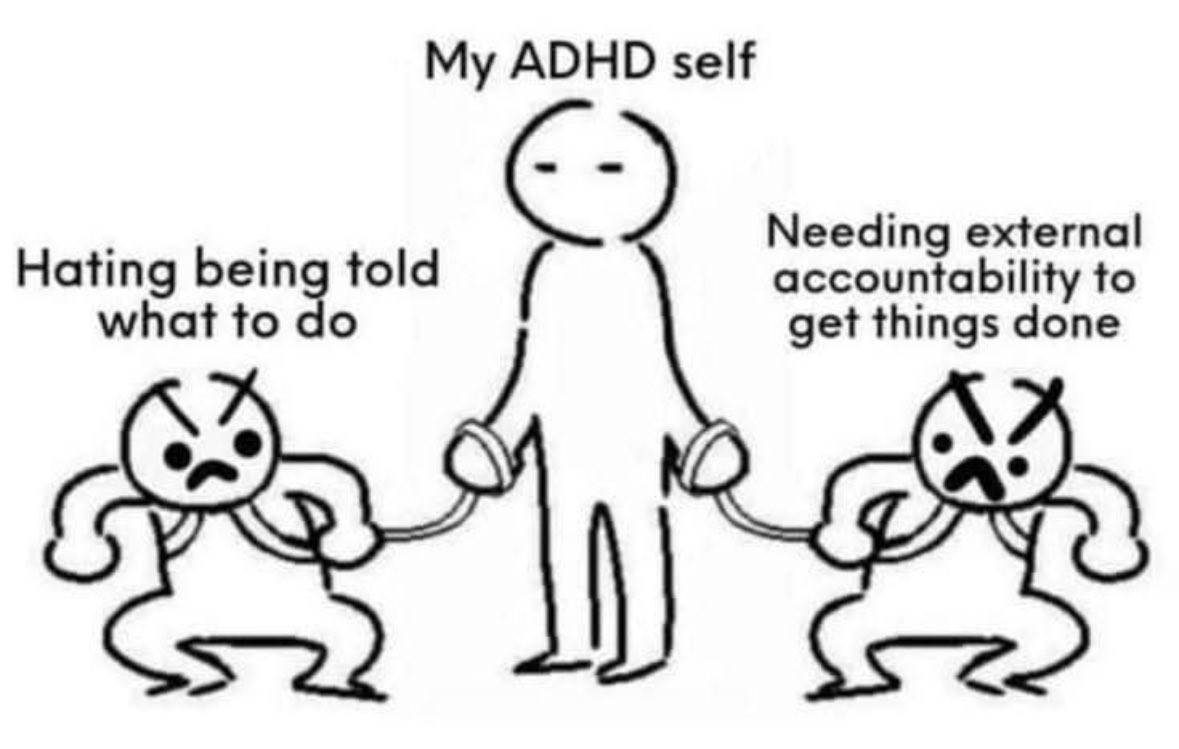this post was submitted on 02 Oct 2025
550 points (99.5% liked)
ADHD memes
11327 readers
946 users here now
ADHD Memes
The lighter side of ADHD
Rules
Other ND communities
- !adhd@lemmy.world - Generic discussion
- !ausomememes@lemmy.dbzer0.com
- !autism@lemmy.world
- !autisticandadhd
- !neurodivergence@beehaw.org
founded 2 years ago
MODERATORS
you are viewing a single comment's thread
view the rest of the comments
view the rest of the comments

Sorry, I was being a bit hyperbolic, but this is my field of work and I have an ADHD Dx myself. The diagnostic criteria is such that the majority of adults who present to a clinician with complaints of inattention that is negatively impacting their life will receive the diagnosis these days (either from their GP, therapist, or psychiatrist).
My soapbox opinion is that the diagnosis, like many others, is more useful as a stepping stone to accessing treatment than it is as a conclusive source of truth about the person with the Dx in their chart. Being symptom-focused rather than worrying about having the label or not is more productive in my opinion.
I suspect I might have ADHD and that would explain many of my shortcomings in school, university, now school again, as well as in my private life. Wouldn't a diagnosis help with choosing the right direction to tackle these problems from?
Like, if I know it's ADHD, I know that it's a brain-chemistry problem and if it's not, it's maybe just a generell attitude or overall motivation problem? I see your point about the focus not needing to be on the diagnosis but on treating the symptoms themselves, regardless of diagnosis, but wouldn't treatment look different then?
The treatment would look different if it's determined to be something else, for example: ADHD symptoms look very similar to what happens if you chronically get bad sleep, or if you're too sedentary and your endurance is low, or if you are depressed/anxious and that is causing you to feel unmotivated or inattentive from the mental load, etc. But otherwise, if you are having "ADHD-like" symptoms, the same coping skills will likely help independently of the label.
I always encourage people to not put too much weight on a diagnosis to explain themselves, but rather as a more functional, strategic tool. As in, this isn't a conclusive label that forever describes me, but rather the current strategy/approach that's being used (sometimes for insurance or access purposes).